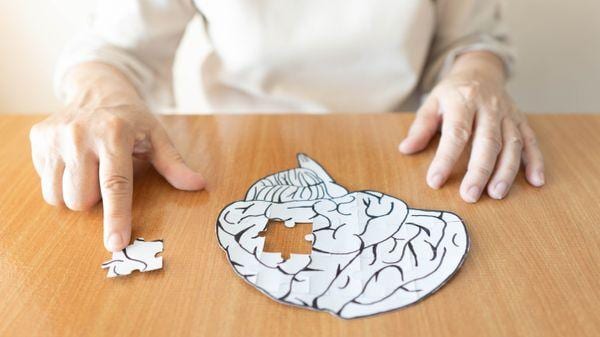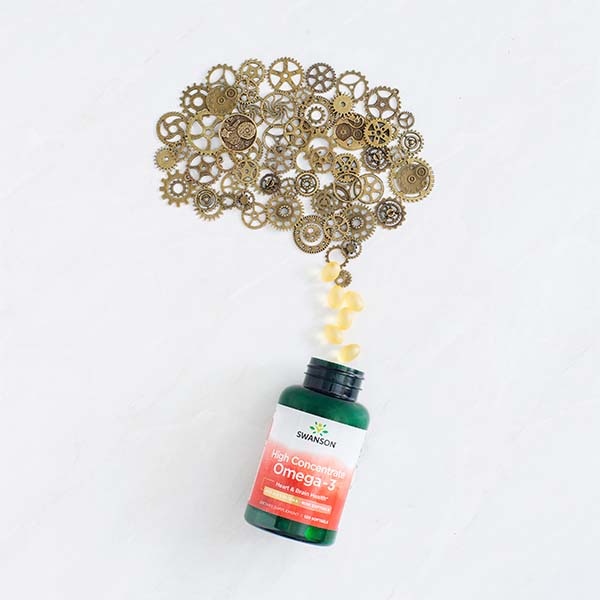What is Acetyl L-Carnitine?
Acetyl L-carnitine comes from the Latin word for flesh, but don’t let its strange name scare you away. From increased energy to better sleep and improved brain function, this amino acid can tackle more than what “meats” the eye.
How Does the Body Produce Acetyl L-Carnitine?
Acetyl L-carnitine—or ALCAR—is a compound found in the body that plays a role in producing energy in addition to promoting brain function.
Acetyl L-carnitine is made from L-carnitine. Your liver and kidney produce L-carnitine from two amino acids: lysine and methionine. The body can convert acetyl L-carnitine to and from the L-carnitine form, which is used to transport long-chain fatty acids into the mitochondria to oxidize or convert fat into energy as well as transport toxins out of the mitochondria.
What are the Benefits of Acetyl L-Carnitine?
While they have many similarities, L-carnitine and acetyl L-carnitine also differ in many ways. Because acetyl L-carnitine can pass through the semi-permeable membrane around your brain (the "blood brain barrier" or "BBB") it’s able to access the mitochondria in your brain. This helps it provide even more benefits, specifically for cognition and brain function.
Energy Production
While studies on fat-burning results are still mixed, one of the main benefits people look for from acetyl L-carnitine is its function in shuttling fatty acids to the mitochondria in order to turn fat into energy. Because of this, acetyl L-carnitine may help improve both physical and mental energy.1
Memory and Cognition
Acetyl L-carnitine may have some brain-boosting benefits, especially for the aging community. In older adults, acetyl L-carnitine is taken to improve memory and cognitive function. Human studies have shown improvement of age-related cognitive function for older adults with a dosage of 1.5 to 3 grams a day.2 Another study also showed improved learning capabilities when acetyl L-carnitine was given to older animals.3
Sleep Health
According to the American Sleep Association, up to 70 million American adults have trouble getting a good night’s sleep.4 With that kind of statistic, it’s no wonder many of us feel exhausted throughout the day. Not getting enough sleep can cause many negative effects, which disrupt sleep-wake cycles.5 Acetyl L-carnitine can pass the blood brain barrier to get directly to the brain and help decrease these negative effects. This can then promote better sleep quality, which can also improve memory.6
What Foods are High in Acetyl L-Carnitine?
Carnitine was originally extracted from meat, so it gets its name for the Latin word for flesh (carnus). It makes sense then that red meat is one of the most common sources of dietary L-carnitine. You can also find high amounts of carnitine in chicken, fish, milk and cheese. It may be beneficial to include acetyl L-carnitine in your wellness routine to ensure you’re getting the proper amount, especially if you are vegetarian or vegan, as dietary source options are reduced to foods with low levels of L-carnitine such as avocados or beans.
What are the Potential Side Effects of Acetyl L-Carnitine?
Acetyl L-carnitine can interfere with some blood thinning medications, so be sure to speak with your doctor before introducing acetyl L-carnitine into your wellness routine.
What is the Acetyl L-Carnitine Dosage for Adults?
Research shows that differing amounts or dosages of acetyl L-carnitine may be more beneficial for differing wellness needs.
For Energy
Research has delved into the effectiveness of using acetyl L-carnitine to boost energy as we age, which included a dosage of two grams, twice daily for 180 days.7
For Memory Health
Studies have focused on an oral dosage of between 1,500 to 2,000 mg of acetyl L-carnitine for a period of three months for memory health.7
For Sleep Health
To promote better sleep, research has focused in on two grams of acetyl L-carnitine, twice a day, for 180 days.7
This compound comes with a long list of wellness benefits. From improved quality of sleep to memory support and better energy, acetyl L-carnitine is a nutrient to get hyped about.
*These statements have not been evaluated by the Food and Drug Administration. These products are not intended to diagnose, treat, cure or prevent any disease.

About Lindsey Toth, MS, RD
Registered Dietitian
Lindsey is a nationally-recognized registered dietitian and nutritionist with a soft spot for pie. She empowers people to take charge of their health by finding the balance between the pleasure and nourishment in food. Her philosophy is that you should take care of your body because it’s the only permanent home you have. It’s what inspired her to pursue a career in nutrition.
Sources:
1. Acetyl L-Carnitine. PubMed. Read source
2.Effect of Acetyl L-Carnitine on Geriatric Patients. National Library of Medicine. Read source
3.Acetyl L-Carnitine Improves Aged Brain Function. Geriatrics & Gerontology International. Read source
4. Sleep statistics. American Sleep Association. Read source
5. Sleep Loss & Inflammation. ScienceDirect. Read source
6.Memory Impairment. National Library of Medicine. Read source
7. Acetyl L-Carnitine. Web MD. Read source




